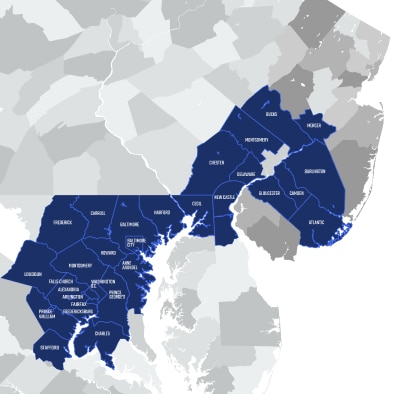How to Fix Low Water Pressure When You Have a Well System

Low water pressure is inconvenient and annoying. Unfortunately, water pressure below 40 psi is a common problem for homeowners who get their water supply from a well.
You don’t just have to deal with low water pressure. There are multiple causes of water pressure issues for well systems, but there are also many solutions.
With the right solution, your home’s well can reach ideal water pressure levels between 40 and 60 psi.
Schedule same day well service with Len The Plumber Heating & Air. Call (800) 950-4619 or contact us online today!
Easy Fixes for Low Well Water Pressure
There’s no need to call a plumber for some of these easy fixes, but the following tips can help you identify and describe the issues you’re experiencing if you prefer to hire a professional.
Clean Clogged Faucets & Fixtures
If you’re dealing with low water pressure in your home’s well water system, clogged faucets and fixtures could be the cause. Over time, sediment buildup and mineral deposits—especially calcium and lime—can clog faucet aerators and restrict water flow.
To fix it:
-
Remove the aerator from the faucet using a wrench or pliers (use a cloth to protect the finish).
-
Rinse or soak the aerator in vinegar to dissolve stubborn mineral buildup.
-
Reattach the aerator and test the water pressure.
This simple fix can often resolve localized pressure issues at individual sinks or showers.
Adjust Your Pressure Switch on Your Well Pump System
One of the most common reasons for low water pressure in a well system is a misadjusted pressure switch. This component regulates how much pressure your well pump generates and when it turns on or off.
To safely adjust it:
-
Shut off the power to your well pump system at the breaker.
-
Use a pressure gauge to check the air pressure at the tank’s valve.
-
If pressure is at or below 40 psi, use a wrench to adjust the pressure switch near the pressure tank.
-
Restore power and test the water at a faucet.
-
Make minor adjustments if needed.
Increasing your well pump’s pressure setting can give your entire home a noticeable boost in water pressure.
Clear Sediment Buildup in Water Supply Lines
If your faucets are clear but you still have low well water pressure, the problem might be in your water supply pipes. Over time, sediment from the well or mineral-heavy hard water can create partial blockages inside your plumbing system.
Professional plumbers can inspect your lines using specialized tools and flush them to:
-
Remove sediment or mineral blockages
-
Restore water pressure throughout your home
-
Prevent future well water flow issues
Install a Whole-Home Water Softener for Hard Well Water
If your home uses well water, chances are you’re dealing with hard water, which contains minerals like calcium and magnesium. These minerals can cause buildup inside your pipes, fixtures, and appliances—ultimately reducing water flow and pressure.
Installing a point-of-entry water softener directly at your well tank can:
-
Soften water before it enters your plumbing
-
Prevent mineral buildup
-
Maintain strong and consistent water pressure from your well
A water softener is a long-term solution for homes with hard well water and low pressure.
Install a Water Pressure Booster or Constant Pressure System
If you’ve tried other solutions but still struggle with low pressure from your well, it may be time to install a water pressure regulation system. These devices are designed to stabilize or boost water pressure depending on your needs.
Two main options:
-
Booster pumps – Ideal if your well system provides water at consistently low psi (typically under 30).
-
Constant pressure systems – Maintain even water pressure, even when multiple fixtures are running.
A licensed plumber can perform a water pressure and flow rate test to help you choose the right option and optimize water pressure in your well-fed home.
Plumbing Infrastructure Issues That Could Cause Low Water Pressure
Low water pressure in well water systems is sometimes caused by plumbing infrastructure that you’ll need to replace if you want higher water pressure in your home.
- Damaged pressure tank: If your pressure tank has a leak, it will create low water pressure. You’ll need to replace the tank if it’s damaged.
- Aging well pump: Well pumps generally last around eight to 15 years, depending on how often they’re used. If your well pump is more than 15 years old, you should consider a replacement.
- Narrow pipes: Even if your home has a high psi, you won’t be able to achieve high water pressure if your pipes are too narrow. They should be half an inch, three-fourths of an inch, or 1 inch in diameter.
Call Len The Plumber Heating & Air for 24/7 Service
Choose Len The Plumber Heating & Air if you’re looking for a local plumber in the Mid-Atlantic region to increase your home’s water pressure.
Our team specializes in well services, and we’re available to provide same day service seven days a week to eliminate your well’s low water pressure.
Schedule same day well system service in MD, DC, VA, NJ, PA, or DE with Len The Plumber Heating & Air. Call (800) 950-4619 or contact us online.
From Len The Plumber Heating & Air
 Coupons
Coupons 

